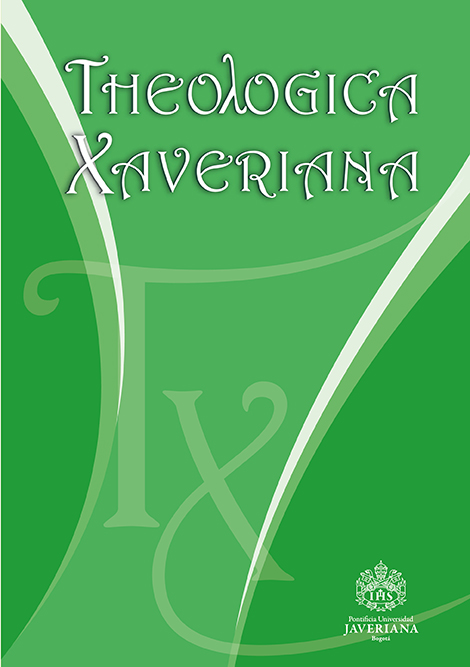Abstract
Women silenced in the Assembly, prevented from asking their husbands in public, and having to bring their heads covered. All this points to a situation of subjugation of the woman/wife in relation to the man/husband. This textual situation, present in Paul’s letters which are considered authentic, generally advocates a situation of gender equality, and raises questions about the figure of the Apostle and about the possibility of late textual interpolation in the Pauline letters. In this paper, we seek to analyze Paul’s personality within his cultural and religious background. We also seek to identify who are the women with whom he worked in terms of apostolic and ministerial parity in order to understand the possible reasons for late textual interpolation in his written liberating message. The investigative procedure employed in this research is, mainly, the interpretative and analytic critique of the textual analysis. The main conclusions are that the Word of God is always a force of renewal capable of transforming the structures of a society. Wherever Paul went, this transformation took place in a germ. However, because of the incarnation process, the Word of God can suffer adverse forces, especially in the context of a sexist and misogynist society, making it possible, therefore, to think of textual extracts interpolated within the authentic Paulinum corpus.
The Holy Bible, New Revised Standard Version Updated Edition (NRSVue) Bible: With Deuterocanonical and Apocryphal Books of the Old Testament, Grand Rapids: Zonvervan, 1993.
Ariarajah, S. Wesley. Did I Betray the Gospel? The Letters of Paul and the Place of Women, Geneva: WCC Publications, 1996.
Bremmer, Jan N. (Ed.), The Apocryphal Acts of Paul and Thecla, Kampen (Netherlands): Kok Pharos Publishing House, 1996.
Byrne, Brendan. Paul and the Christian Woman, New South Whales: St Paul Publications, 1988.
Cleary, Francis X. “Women in the New Testament, St. Paul and the Early Pauline Churches.” Biblical Theology Bulletin, X (April 1980).
Fiorenza, Elizabeth Schussler. In Memory of Her: A Feminist Theological Reconstruction of Christian Origins. New York: The Crossroad Publishing Company, 1983.
Fitzmyer, Joseph A. First Corinthians. A New Translation with Introduction and Commentary. The Anchor Yale Bible 32. New Haven and London: Yale University Press, 2008.
Hays, Richard B. The Letter to the Galatians, The New Interpreter’s Bible, Vol. XI, Eds. Leander E. Keck et all. Nashville: Abingdon Press, 2002.
Ladd, George Eldon. A Theology of the New Testament. Michigan: William B. Eerdmans Publishing Company, 1974.
Lambrecht, Jan. 1 Corinthians. The International Bible Commentary, William R. Farmer, Ed. Collegeville, Minnesota: 1998.
Morris, Leon. New Testament Theology, Michigan: Zondervan Publishing House, 1986.
_____. The Cross in the New Testament. Wm. B. Erdmans Publishing Co., 1965.
Murphy-O’Connor, Jerome. 1 Corinthians. Collegeville, Minnesota: The liturgical Press, 1991.
Orr, William Fridell and Walter, James Arthur. 1 Corinthians: A New Translation with Commentary. New York: Doubleday & Company, Inc.1976.
Sampley, J. Paul. The First Letter to the Corinthians, The New Interpreter’s Bible, Eds. Leander E. Keck et all. Nashville: Abingdon Press, 2002, Vol. X.
Scroggs, Robin. “The Heuristic Value of a Psychoanalytic Model in the Interpretation of Pauline Theology”. Zygon 13 (1978): 156-157.
Stevens, George Baker. The Theology of the New Testament. Edinburgh: T. & T. Clark, 1899.
Wright, N.T. The Letter to the Romans, The New Interpreter’s Bible, Vol. X, Eds. Leander E. Keck et all. Nashville: Abingdon Press, 2002.

Dieses Werk steht unter der Lizenz Creative Commons Namensnennung 4.0 International.


